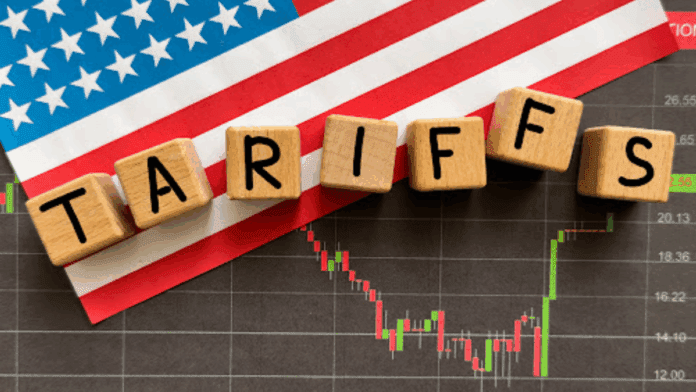The United States has announced a sharp escalation in its global trade war, targeting two of its strongest allies—Japan and South Korea—with new tariffs. Starting August 1, American importers will pay a 25% tariff on all goods coming from both countries. The news came directly from U.S.
25% Tariffs to Hit Japan and South Korea Amid Trade War Escalation
President Donald Trump, who shared official letters with the nations through his Truth Social platform.
The letters warn that any attempt to retaliate with new tariffs will result in an even higher charge from the U.S. Trump made it clear: if Japan or South Korea increases their tariffs, the U.S. will match that increase on top of the 25%.
These new tariffs do not combine with previously announced taxes on cars, steel, and aluminum. This means the charges are independent and apply across the board to other goods. The announcement has added pressure on trade talks, which have been ongoing since Trump first launched the global tariff wave in April this year.
To allow more time for negotiations, Trump signed an executive order delaying the tariff enforcement from this Wednesday to August 1. However, when asked about the firmness of that deadline, Trump responded, “I would say firm, but not 100% firm.” This opens the door for possible last-minute changes if new offers come in.
Trump Targets BRICS: 10% Tariff Declared on Countries Backing Bloc
Leaders Respond Swiftly to Trump’s Demands
World leaders wasted no time in responding. Japanese Prime Minister Shigeru Ishiba said that the U.S. had submitted a proposal to fast-track trade discussions. Ishiba told a cabinet meeting that Japan is hopeful the terms of Trump’s letter could be revised if progress is made before the deadline.
South Korea also acknowledged the letter and said it views the deadline extension as a grace period for talks. Officials said they plan to accelerate discussions with U.S. trade representatives in the coming weeks.
Former U.S. trade negotiator Wendy Cutler called the move disappointing but said the situation still has room for a breakthrough. Now vice president of the Asia Society Policy Institute, Cutler believes this is not the end of talks and that negotiations could still prevent the tariffs.
US Slaps 20% Tariff on Vietnam Imports as Trump Announces New Deal
The trade pressure doesn’t stop with Japan and South Korea. Trump has also imposed 25% tariffs on Tunisia, Malaysia, and Kazakhstan, while other countries face even steeper rates. South Africa and Bosnia now face 30%, with Indonesia, Bangladesh, Serbia, Cambodia, Thailand, Laos, and Myanmar seeing rates that climb to 40%.
The news hit hard in Bangladesh, where the garment industry makes up over 80% of export earnings and employs around 4 million workers. Mahmud Hasan Khan, president of the Bangladesh Garment Manufacturers and Exporters Association, said, “This is absolutely shocking news for us. We were really hoping the tariffs would be somewhere between 10-20%. This will hurt our industry badly.”
Indonesia is preparing to send its top trade negotiators to Washington, while Malaysia said it acknowledges U.S. concerns and wants to continue positive discussions. Thailand believes it can secure a competitive tariff deal if talks go well.
South African President Cyril Ramaphosa responded by stating the new 30% tariff is unjustified, since over three-quarters of U.S. goods enter South Africa tariff-free. His spokesperson said the country will keep working to resolve the issue through diplomatic channels.
Markets React as Tariff Talks Heat Up Globally
News of the tariffs caused the S&P 500 Index to fall 0.8% on Monday. Though Wall Street reacted negatively, markets in Asia were more stable. Japan’s Nikkei Index bounced back after early losses, and South Korea’s stock market rose over 1%.
Trump’s Tariff Letters Begin Friday with Rates as High as 70%
Economist Tapas Strickland of National Australia Bank said the markets will likely stay volatile as more details about the letters emerge and as countries rush to meet the August 1 deadline.
Meanwhile, U.S. Treasury Secretary Scott Bessent said his office is flooded with last-minute trade offers. Only two deals have been completed so far—one with Britain and one with Vietnam. The U.S. also struck a framework agreement with China, which has until August 12 to finalize the deal and avoid additional tariffs.
China warned it may retaliate against countries that sign deals with the U.S. and cut Beijing out of key supply chains.
The European Union, however, is not currently included in the tariff hike. EU officials said talks with the U.S. are ongoing, and Commission President Ursula von der Leyen had a productive exchange with Trump recently.
In a final twist, Trump also warned members of the BRICS economic bloc—which includes Brazil, Russia, India, and China—that they could face an extra 10% tariff if they adopt policies seen as “anti-American.”


